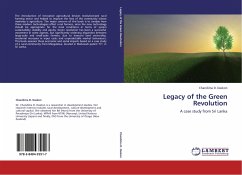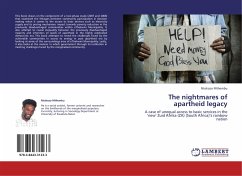The introduction of innovative agricultural devices revolutionized rural farming sector and helped to improve the lives of the community whose mainstay is agriculture. The major concern of this book is to analyse how these modern technologies affect rural farmers, since the new technology should be appropriate for the local conditions in terms of system sustainability, stability and equity. Green revolution has been a successful movement in some aspects, but significantly widening disparities between large-scale and small-scale farmers, due to insecure land ownership, incidental increases in input costs and unpredictable market behaviours. This book assesses these economic and social impacts based on a case study of a rural community from Meegalawe, located in Mahaweli system H , in Sri Lanka.








